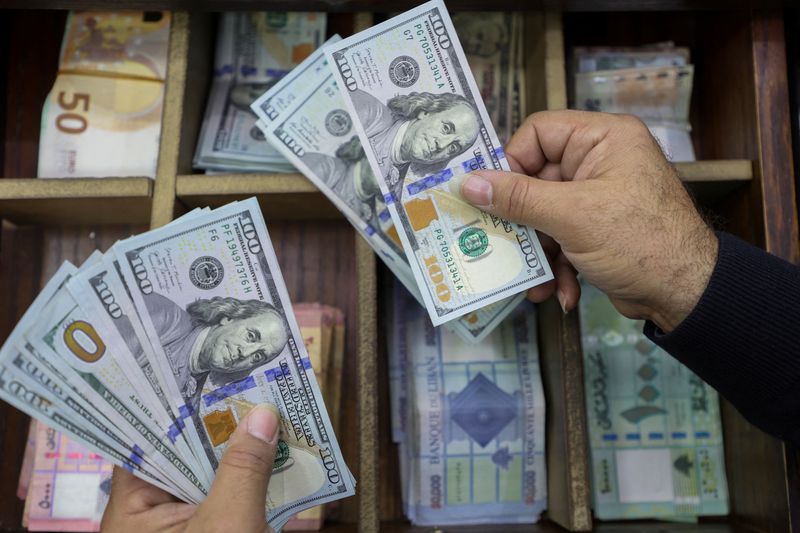
By Ray Wee
SINGAPORE (Reuters) – The dollar started the week strong on Monday, leaving peers near multi-year lows after a strong U.S. jobs report highlighted the outperformance of the world's largest economy versus the rest of the world.
The euro and the New Zealand dollar approached the lowest level in more than two years at $1.0242 and $0.5565, respectively, at the beginning of the Asian session. Trading was thin with Japanese markets closed for holiday.
The Australian dollar struggled to emerge from its weakest level in more than four years at US$0.6139. It rose in recent trading by 0.1% to $0.6153.
Data on Friday showed US job growth unexpectedly accelerated in December, while the unemployment rate fell to 4.1% as the labor market ended the year on a strong footing, prompting traders to sharply scale back their bets on a Fed rate cut this year. .
“This latest round of data underscores the fact that US economic exceptionalism remains a key market theme from 2025,” said Nick Rees, head of macro research at Monex Europe.
“The US labor market has stabilized but is not continuing to decline, and this coupled with upside inflation risks from the new (Donald) Trump administration… should support an extended pause in easing by the FOMC.”
Markets are now pricing in Fed rate cuts of just 27 basis points this year, down from about 50 basis points at the start of the year.
Adding to expectations of a less aggressive easing cycle is the view that US President-elect Donald Trump's plans to impose massive import tariffs, tax cuts and restrictions on immigration could lead to higher inflation. He will return to the White House within a week.
Before that, US inflation data is due on Wednesday, where any upside surprise could threaten to close the door on easing completely. A slew of Fed officials are also scheduled to speak this week.
The US dollar stood at 109.67 against a basket of currencies, hovering near its strongest levels since November 2022.
Against the dollar, the yen fell 0.12 percent to 157.92 yen. The magnitude of the yen's decline was tempered by news that Bank of Japan policymakers may raise their inflation forecasts at a policy meeting this month as a precursor to raising interest rates again.
The pound sterling rose in the latest trading by 0.07% to $1.2204, but it was not far from the lowest level in 14 months at $1.2239, also affected by concerns at home about rising borrowing costs and growing concerns about the financial situation in Britain.
Chris Weston, head of research at Pepperstone, said: “It looks like all roads lead to sterling falling, and rallies need to be contained and sold quickly.”

In China, there was little change at 7.3605 to the dollar.
The People's Bank of China suspended purchases of Treasury bonds on Friday, briefly raising yields and sparking speculation that it is strengthening the defense of the Chinese currency.





